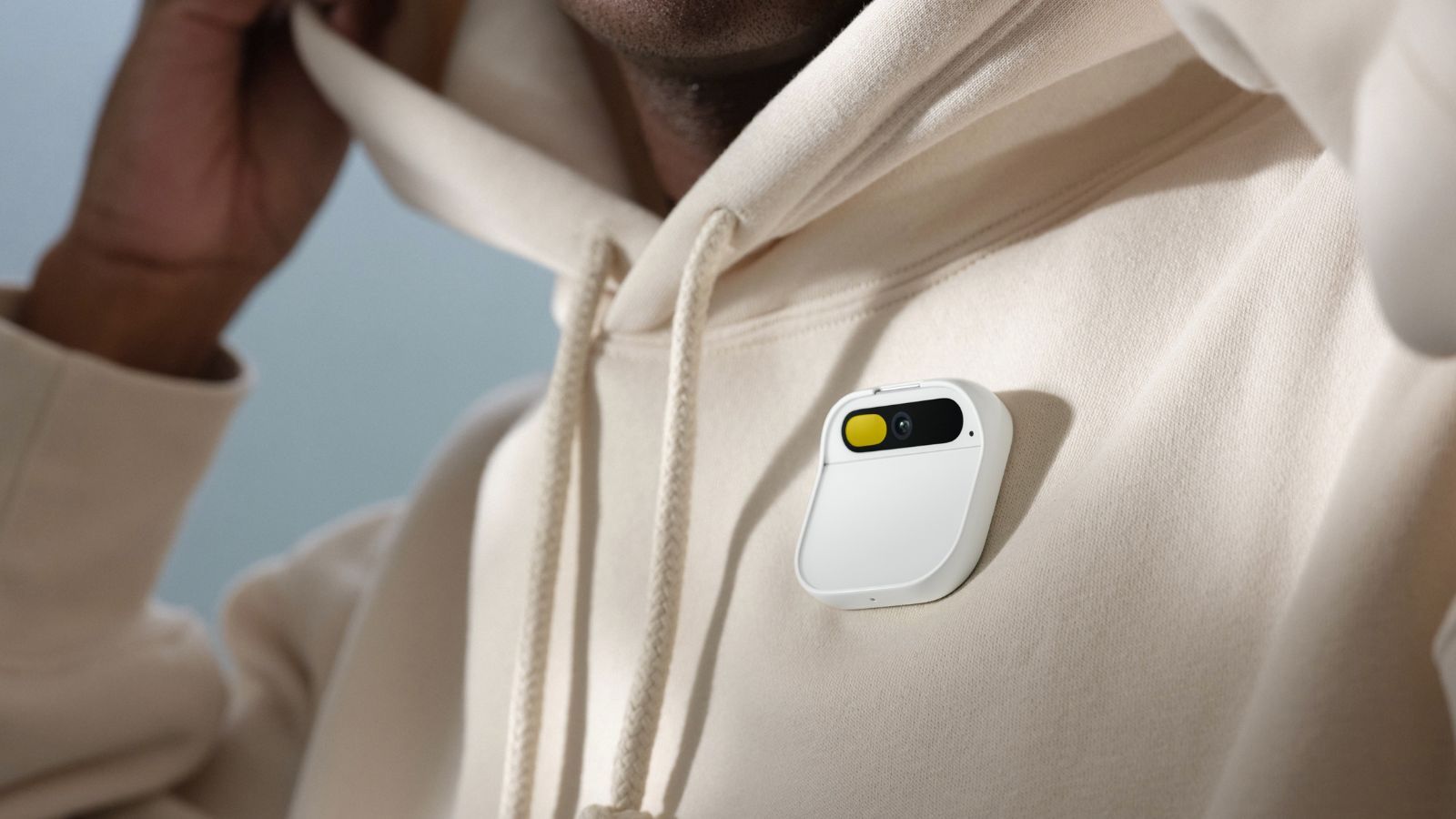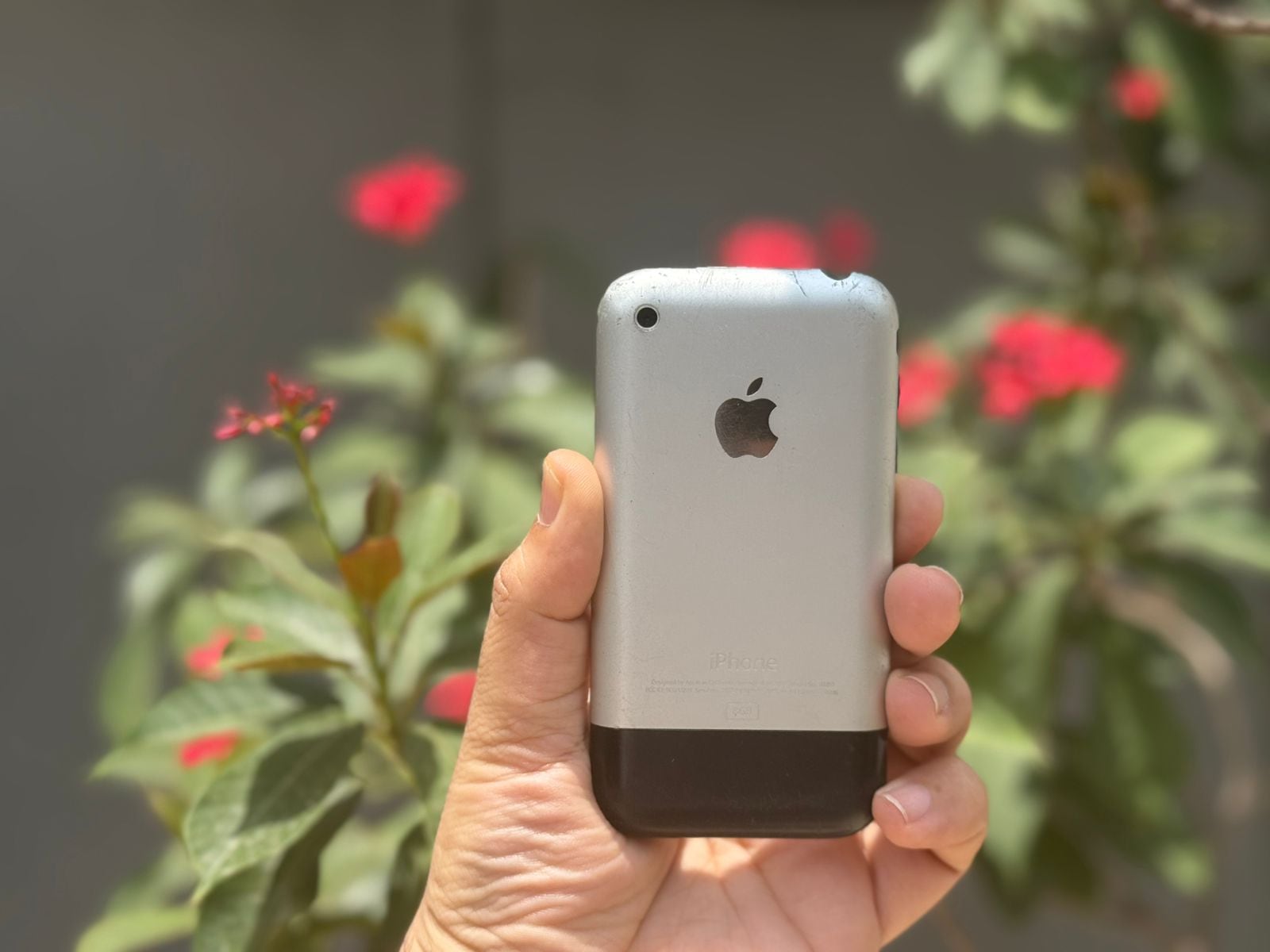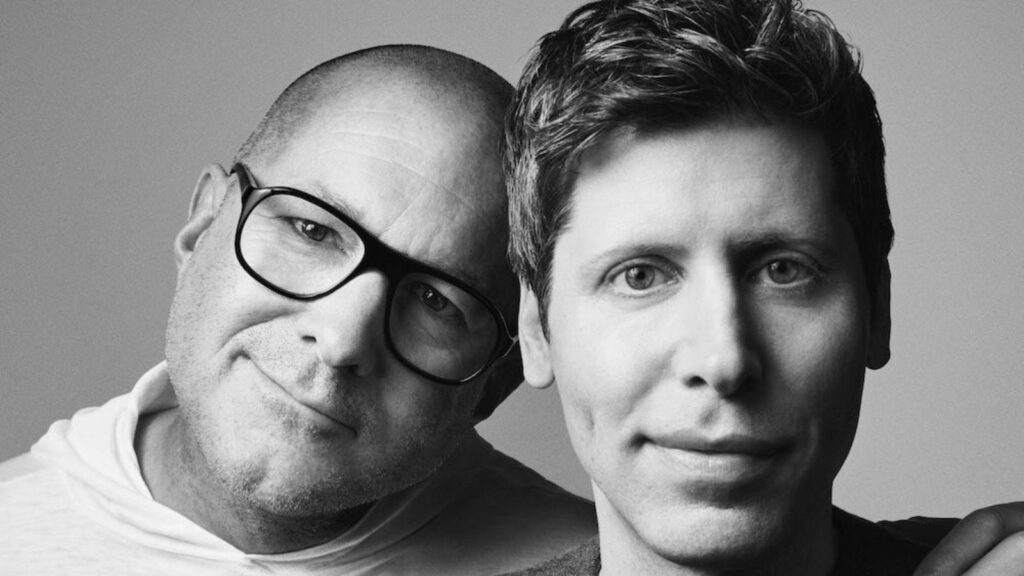Earlier this week, OpenAI CEO Sam Altman made a surprise announcement that his company is acquiring io, a startup founded by Jony Ive, Apple’s former industrial designer, for $6.5 billion. The news caught everyone in Silicon Valley off guard, and its impact was felt at Apple, whose shares dropped by 2.3 per cent.
Both Altman and Ive are powerful names in tech, and the partnership between the iPhone designer and the developer of ChatGPT is both exciting and unusual. Ive remains one of the greatest industrial designers of all time, and his Midas touch has given the world iconic Apple products—be it the iPod, iPhone, iPad, or AirPods.
In the past, Ive worked closely with Apple co-founder Steve Jobs, and their “spiritual” relationship resulted in some of the most world-changing products ever created. OpenAI’s promotional materials feature Altman and Ive in a video that strongly implies Altman’s collaboration with the Apple’s famed designed tries to pitch him as Jobs’ natural successor.
Although calling Altman the next Steve Jobs may be an overstatement, the fact that he and Ive have teamed up for the first time to bet on a new AI hardware product has surprised many—especially given that Ive never shared the same kind of relationship with Apple CEO Tim Cook. Ive left Apple in 2019 to start his own company, LoveFrom.
The only difference this time is that Altman and Ive’s collaboration is being heavily marketed to give the impression that the duo is set to create a product—still shrouded in mystery—that could have an impact as significant as the iPhone did for the world and for Apple. Ive and his previous collaborator, Steve Jobs, never pre-announced products or teased announcements until launch day.

But the big question is: what are Altman and Ive working on that they believe could match the success of the iPhone? All signs point to a new type of device—one that’s neither a smartphone, nor a pair of smart glasses like Meta’s Ray-Bans or Google’s recently announced AI smart glasses prototype, nor a smartwatch.
Neither Altman nor Ive is ready to reveal the form factor of the device yet, but in a glossy nine-minute promo video shot in San Francisco, Altman says of the mystery gadget: “Jony recently gave me one of the prototypes of the device to take home for the first time, and I’ve been able to live with it. I think it is the coolest piece of technology that the world will have ever seen.”
Story continues below this ad
Could it be a Humane AI Pin-like device—a screenless gadget that Apple’s ex-designer Imran Chaudhry tried to make but failed miserably? There are all sorts of theories floating around on the internet, but Ive himself described the Humane Pin and other AI hardware products like the Rabbit R1 as “very poor products.”
 Humane AI was acquired by HP earlier this year. (Image credit: Humane.com)
Humane AI was acquired by HP earlier this year. (Image credit: Humane.com)
So what exactly was the prototype Altman was testing? A neckband with a camera attached? Maybe, or maybe not. But the product will be “unobtrusive” and capable of being fully aware of a user’s surroundings and life. With a launch date set for late 2026 for the first AI hardware—and Altman promising a family of AI devices—both Altman and Ive have set out an ambitious goal: to create 100 million AI “companions.”
With OpenAI’s experience in AI and Ive’s track record of creating sleek hardware, expectations will certainly be high to produce a product that belongs to the future—like the iPhone was when it debuted in 2007. However, there are also doubts about whether the “AI device” Altman refers to will actually replace the smartphone in your pocket. The phone remains the most usable device in everyday life, and its apps and ecosystem are so strong that no other device has yet replaced the smartphone.
While companies like Meta and others envision smart glasses replacing the smartphone in the future, there has been no defined form factor even close to the phone so far. Even Apple, which is still living on the past glory of the iPhone—although its popularity has peaked, it is still going strong and bringing in billions in revenue each year—has tried and failed with the Vision Pro, a mixed-reality headset that is too bulky and expensive, and that most people have forgotten about.
Story continues below this ad
But there are signs that the smartphone form factor won’t be around much longer—in the next 10 years. At Google’s antitrust trial earlier this month, Apple executive Eddy Cue said that because of AI, “you may not need an iPhone 10 years from now.” So the industry is working behind the scenes to create a new device in the hope that it will finally topple the iPhone and become the new benchmark, surpassing the success of the smartphone.
Whatever product replaces the smartphone will be built around artificial intelligence. This is what Silicon Valley has been hinting at for the past year or so. However, earlier attempts at creating AI devices from the ground up have had a poor track record. The question remains: how differently are Altman and Ive approaching the creation of this AI device? There are challenges, such as whether the AI will be cloud-based—which means the device could stop working when offline and may experience latency even when connected.
 The first Apple iPhone designed by Jony Ive. (Image credit: Anuj Bhatia/Indian Express)
The first Apple iPhone designed by Jony Ive. (Image credit: Anuj Bhatia/Indian Express)
Perhaps the biggest hurdle is whether Jony Ive is still as relevant as he was back in the day when he was with Apple. Ive may be the greatest industrial designer of all time, but since leaving Apple, he has not created a single compelling product. After departing Apple in 2019 to start his own design firm, LoveFrom, he has worked only on products like a $2,000 jacket, a $60,000 limited-edition turntable, and some projects for Ferrari.
OpenAI is not buying LoveFrom, but Ive’s design consultancy will remain independent. Instead, Altman’s company is acquiring a LoveFrom spinoff named io. Led by Ive and three other former Apple employees, io is a product-focused group with hardware and software engineers. io’s 55 employees will join OpenAI to form a new hardware division, which will be led by Peter Welinder.
Story continues below this ad
Altman is a visionary and perhaps the leading authority in AI in the current landscape. And while he may be the biggest figure in tech right now, Altman’s style is very different from Jobs’, who was passionate, driven, and a control freak when it came to the products Apple wanted to make. Altman, on the other hand, likes to move fast and ships his products early to the public and developers to try. Comparing Altman with Jobs may not be the right thing to do, but this is also a new era, and perhaps Ive understands this well and is ready to adapt to the changing times.


